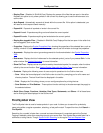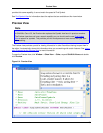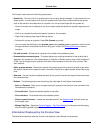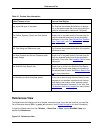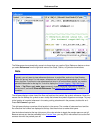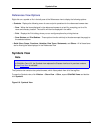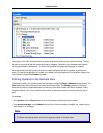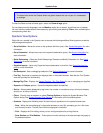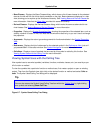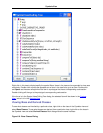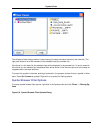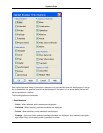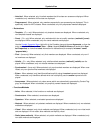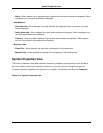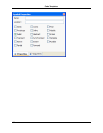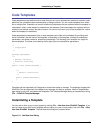
• Base Classes - Displays the Base Classes dialog, which shows a list of base classes for the selected
class on the left with the list of that class’s members on the right. Base classes are displayed in a tree
view, allowing you to explore up the inheritance hierarchy. See Viewing Base and Derived Classes for
more information. Note that the Class View provides this same functionality.
• Derived Classes - Displays the Derived Classes dialog, which works the same as above but for de-
rived classes. See Viewing Base and Derived Classes for more information.
• Properties - Displays the Symbol Properties View, showing the properties of the selected item, such as
visibility, whether it's static or final, etc. Note that this window is read-only, so you can’t use it to change
the properties.
• Arguments - Displays the return type and arguments for functions/methods in the Symbol Properties
View.
• References - Displays the list of references for the selected symbol in the References View, just as if
you pressed Ctrl+/ in the editor window. See Symbol Navigation for more information.
• Calls/Uses - Displays a tree of symbols that are used by this symbol or called by this function. See
Viewing Symbol Uses with the Calling Tree for more information.
Viewing Symbol Uses with the Calling Tree
View symbol uses to see what symbols (variables, functions, methods, classes, etc.) are used by a spe-
cific function or method.
To view the symbols that a particular function or method uses, first create a project or open an existing
project. Then from the Symbols view, right-click on the desired function or method and select Calls or
uses. The Symbol Uses/Calling Tree dialog will be displayed.
Tip
You can also access the Symbol Uses/Calling Tree from within the Outline View by right-clicking
on a symbol and selecting Show Call Tree.
Figure 6.7. Symbol Uses/Calling Tree Dialog
Symbols View
96



